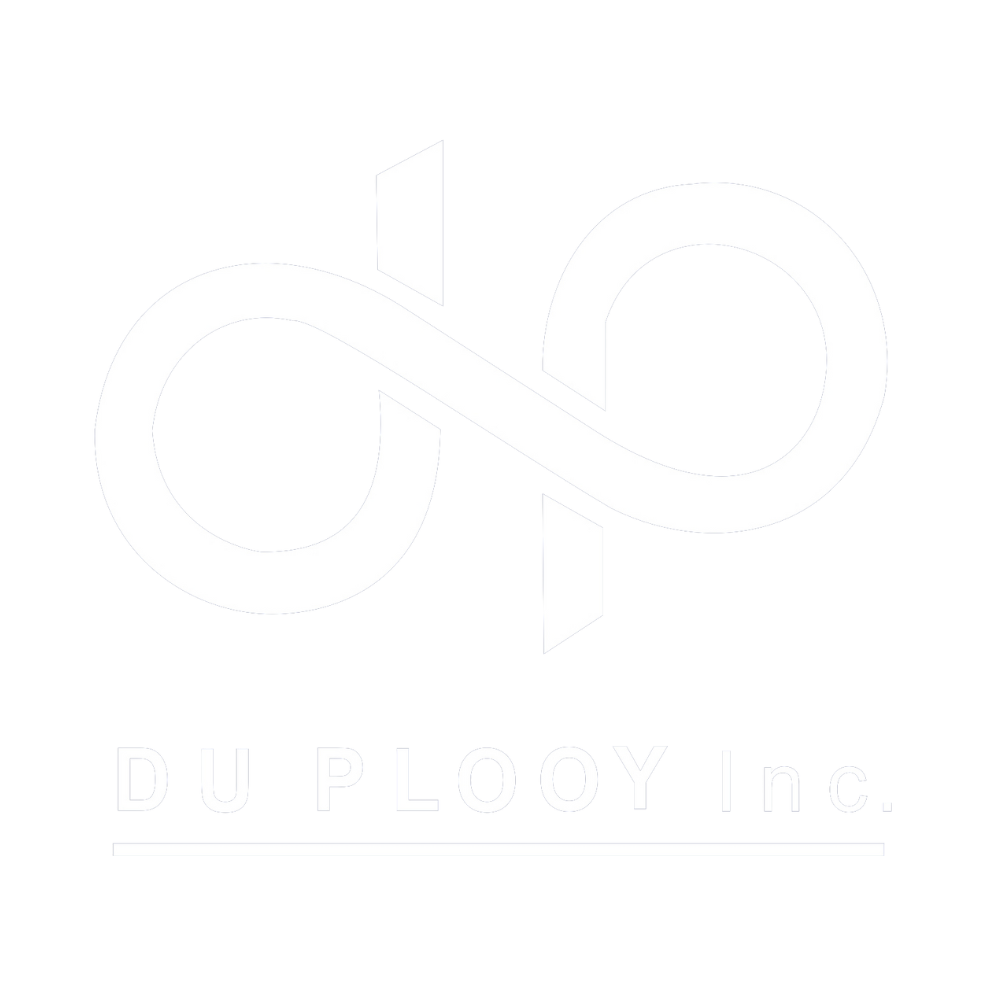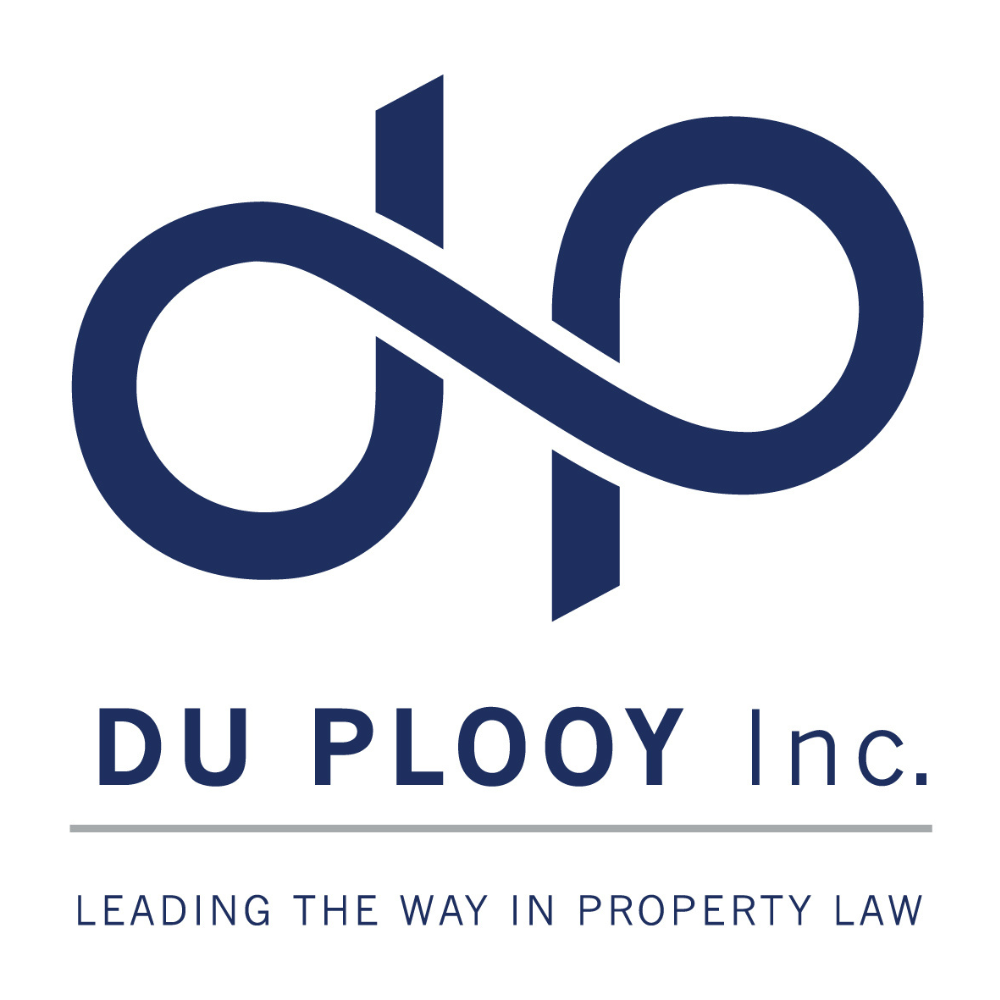Attorneys | Notaries | Conveyancers
Leading the way in
Property Law for
20 years.

Our Blog

Do You Really Need a Conveyancer to Transfer Property? (Spoiler: Yes, and Here's Why)
When buying or selling property in South Africa the process might seem straightforward from the outside. You find a buyer, sign an Offer to Purchase, and then... What happens? Many wonder if they truly need a specialized attorney, a conveyancer, to handle the transfer. The simple and unequivocal answer is: Yes, you absolutely do.
At Du Plooy Inc., we believe in empowering our clients with knowledge. Understanding why a conveyancer is indispensable is key to appreciating the security and peace of mind they bring to your property journey. It's not just a recommendation; it's a legal necessity.
The Legal Mandate: You Cannot Transfer Property Yourself
In South Africa, the transfer of immovable property from one owner to another is governed by strict laws, primarily the Deeds Registries Act. This legislation dictates that only a duly admitted, qualified, and registered conveyancer – an attorney who has passed additional specialized exams – is legally permitted to prepare and lodge the necessary documents for property transfer and bond registration at the Deeds Office. You cannot do it yourself.
This legal framework is in place to protect all parties involved and ensure the integrity of the property registration system.
The Value Beyond Legal Necessity: More Than Just Paperwork
While the law dictates their involvement, a conveyancer's value extends far beyond simply being a legal requirement. They act as the central orchestrator and legal guardian of your transaction:
Expert Legal Knowledge & Due Diligence: Property law is complex, encompassing everything from contract law and FICA regulations to specific municipal bylaws and tax implications like Transfer Duty. Your conveyancer meticulously examines title deeds for servitudes or restrictive conditions, ensuring you know exactly what you're buying or selling.
Risk Mitigation & Fraud Prevention: They identify and resolve potential issues before they become costly problems. This includes verifying identities, ensuring compliance certificates are valid, addressing outstanding municipal debts, and safeguarding against fraudulent activities. Their expertise minimizes your exposure to legal and financial risks.
The Central Coordination Hub: A conveyancer is the critical link between all parties involved:
The Seller's bank (for bond cancellation).
The Buyer's bank (for new bond registration).
The local municipality (for rate clearance).
SARS (for Transfer Duty clearance).
Estate agents, the Deeds Office, and the respective attorneys. They manage the complex coordination required for simultaneous lodging of documents, ensuring all pieces fit perfectly.
Meticulous Document Preparation & Scrutiny: Every document lodged at the Deeds Office, especially the Deed of Transfer, must be perfect. Even minor errors can lead to rejections, causing significant and costly property transfer delays. Your conveyancer meticulously drafts, checks, and double-checks every single document to ensure legal compliance.
Professional Responsibility & Indemnity: Conveyancers operate under strict ethical rules and carry professional indemnity insurance. This means they are professionally and financially accountable for any errors or negligence, providing you with a crucial layer of protection that you wouldn't have without their involvement.
Your Secure Property Journey with Du Plooy Inc.
For what is often the largest financial transaction of your life, attempting to navigate the complexities of property transfer without a dedicated expert is not only impossible but profoundly risky. At Du Plooy Inc., our team of specialized conveyancers combines deep expertise in property law with a commitment to transparent, efficient service.
We ensure every detail is handled with precision, protecting your interests and guiding you to a seamless and legally sound transfer.
Newsletters
Stay ahead of the curve with Du Plooy Inc.'s legal newsletters! Our concise updates deliver insights on property law, keeping you informed on the latest regulations and rulings.
2025
May
2024
Attorneys | Conveyancers | Notaries
Leading
the way in Property Law
for 20 years.

Our Blog

Do You Really Need a Conveyancer to Transfer Property? (Spoiler: Yes, and Here's Why)
When buying or selling property in South Africa the process might seem straightforward from the outside. You find a buyer, sign an Offer to Purchase, and then... What happens? Many wonder if they truly need a specialized attorney, a conveyancer, to handle the transfer. The simple and unequivocal answer is: Yes, you absolutely do.
At Du Plooy Inc., we believe in empowering our clients with knowledge. Understanding why a conveyancer is indispensable is key to appreciating the security and peace of mind they bring to your property journey. It's not just a recommendation; it's a legal necessity.
The Legal Mandate: You Cannot Transfer Property Yourself
In South Africa, the transfer of immovable property from one owner to another is governed by strict laws, primarily the Deeds Registries Act. This legislation dictates that only a duly admitted, qualified, and registered conveyancer – an attorney who has passed additional specialized exams – is legally permitted to prepare and lodge the necessary documents for property transfer and bond registration at the Deeds Office. You cannot do it yourself.
This legal framework is in place to protect all parties involved and ensure the integrity of the property registration system.
The Value Beyond Legal Necessity: More Than Just Paperwork
While the law dictates their involvement, a conveyancer's value extends far beyond simply being a legal requirement. They act as the central orchestrator and legal guardian of your transaction:
Expert Legal Knowledge & Due Diligence: Property law is complex, encompassing everything from contract law and FICA regulations to specific municipal bylaws and tax implications like Transfer Duty. Your conveyancer meticulously examines title deeds for servitudes or restrictive conditions, ensuring you know exactly what you're buying or selling.
Risk Mitigation & Fraud Prevention: They identify and resolve potential issues before they become costly problems. This includes verifying identities, ensuring compliance certificates are valid, addressing outstanding municipal debts, and safeguarding against fraudulent activities. Their expertise minimizes your exposure to legal and financial risks.
The Central Coordination Hub: A conveyancer is the critical link between all parties involved:
The Seller's bank (for bond cancellation).
The Buyer's bank (for new bond registration).
The local municipality (for rate clearance).
SARS (for Transfer Duty clearance).
Estate agents, the Deeds Office, and the respective attorneys. They manage the complex coordination required for simultaneous lodging of documents, ensuring all pieces fit perfectly.
Meticulous Document Preparation & Scrutiny: Every document lodged at the Deeds Office, especially the Deed of Transfer, must be perfect. Even minor errors can lead to rejections, causing significant and costly property transfer delays. Your conveyancer meticulously drafts, checks, and double-checks every single document to ensure legal compliance.
Professional Responsibility & Indemnity: Conveyancers operate under strict ethical rules and carry professional indemnity insurance. This means they are professionally and financially accountable for any errors or negligence, providing you with a crucial layer of protection that you wouldn't have without their involvement.
Your Secure Property Journey with Du Plooy Inc.
For what is often the largest financial transaction of your life, attempting to navigate the complexities of property transfer without a dedicated expert is not only impossible but profoundly risky. At Du Plooy Inc., our team of specialized conveyancers combines deep expertise in property law with a commitment to transparent, efficient service.
We ensure every detail is handled with precision, protecting your interests and guiding you to a seamless and legally sound transfer.
Newsletters
Stay ahead of the curve with Du Plooy Inc.'s legal newsletters! Our concise updates deliver insights on property law, keeping you informed on the latest regulations and rulings.
2025
May
2024
Trusted Expertise, Proven Results.
We've helped over 50,000 clients achieve success.

Trusted Expertise,
Proven Results.
We've helped over 50,000 clients
Achieve Success.

DU PLOOY Inc
Training Centre
Are you an Estate Agent or Mortgage Originator?
The KVV Training Centre is a platform for continued learning and education. This Centre is especially focused on Estate Agents and Mortgage Originators who wish to broaden their knowledge about the property industry and the legal implications of the elements associated with it.
Our directors are more than happy to do onsite training at your offices, in which case the material in the training centre can be used to reaffirm knowledge obtained during training. Alternatively, the Training Centre provides a welcome alternative to the learner who does not have time to sit in a classroom during the day and wishes to do training in his own time and in the comfort of his own home or office.
Certain of the programmes provide for a small knowledge test at the end, in order to obtain and print an Attendance Certificate as required by the PPRA.
Johannesburg
Monday - Friday: 8am to 5pm
Saturday & Sunday: Closed
Hermanus
Monday - Friday: 8am to 4.30pm
Saturday & Sunday: Closed
Follow us

Johannesburg
Monday - Friday: 8am to 5pm
Saturday & Sunday: Closed
Hermanus
Monday - Friday: 8am to 4.30pm
Saturday & Sunday: Closed
Follow us
© Du Plooy Inc 2026
© Du Plooy Inc 2026
